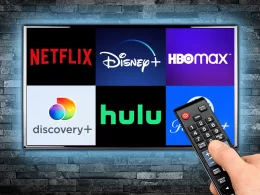Introduction
The music industry has experienced seismic shifts over the past two decades, with the advent of music streaming services at the heart of this transformation. As platforms like Spotify, Apple Music, and Amazon Music have gained prominence, they have revolutionized how music is consumed, distributed, and monetized. This article delves into the multifaceted impact of music streaming services on the industry, examining the benefits, challenges, and future implications of this digital revolution.
The Rise of Music Streaming Services

-
A Brief History
The concept of streaming music isn’t entirely new, but its widespread adoption is a relatively recent phenomenon. The early 2000s saw the rise of digital downloads, primarily through platforms like iTunes. However, the launch of Spotify in 2008 marked the beginning of a new era. Offering both free ad-supported and premium subscription models, Spotify provided users with access to a vast library of music without the need to purchase individual tracks or albums.
-
Growth and Popularity
Since Spotify’s inception, the music streaming industry has seen exponential growth. According to the International Federation of the Phonographic Industry (IFPI), streaming accounted for 62.1% of global recorded music revenues in 2020, up from just 7% in 2010. This surge in popularity can be attributed to several factors, including the convenience of on-demand access, personalized playlists, and the proliferation of mobile devices.
Impact on Artists and Labels

-
Revenue Models
One of the most significant changes brought about by music streaming services is the shift in revenue models. Traditional revenue streams, such as physical sales and digital downloads, have been supplanted by streaming royalties. While this model offers the potential for continuous income, it has also sparked debate over the fairness of royalty rates. Many artists argue that the per-stream payouts are insufficient, particularly for independent musicians without the backing of major labels.
-
Exposure and Discoverability
On the flip side, streaming platforms have democratized access to music distribution. Independent artists can now upload their music to services like Spotify and Apple Music, reaching a global audience without the need for a record deal. Additionally, algorithm-driven recommendations and curated playlists enhance discoverability, helping emerging artists gain exposure and build a fan base.
Consumer Behavior and Experience

-
Listening Habits
Music streaming services have fundamentally altered listening habits. The concept of album-oriented listening has given way to a more track-centric approach, with playlists and single releases becoming the norm. This shift has influenced how artists structure their releases, often prioritizing singles over full-length albums to maintain listener engagement.
-
Accessibility and Convenience
The convenience of having millions of songs at one’s fingertips cannot be overstated. Users can access their favorite tracks anytime, anywhere, and on any device. Offline listening features further enhance this convenience, allowing users to download music for playback without an internet connection.
Technological Advancements

-
Machine Learning and AI
Machine learning and artificial intelligence (AI) play a crucial role in the music streaming industry. Algorithms analyze user behavior to provide personalized recommendations, creating a tailored listening experience. These technologies also aid in content curation, ensuring that playlists and radio stations align with user preferences.
-
High-Quality Audio
As competition among streaming services intensifies, platforms are increasingly focusing on audio quality. High-fidelity streaming options, such as Tidal’s HiFi plan and Amazon Music HD, cater to audiophiles seeking superior sound quality. This emphasis on high-quality audio is driving innovation in streaming technology and hardware.
Challenges and Controversies

-
Royalty Disputes
The issue of fair compensation for artists remains a contentious topic. While streaming has generated significant revenue for the industry, the distribution of this income is often skewed in favor of major labels and top-tier artists. Independent musicians and smaller labels frequently struggle to earn sustainable income from streaming alone.
-
Data Privacy
As with any digital service, data privacy is a concern in the music streaming industry. Platforms collect vast amounts of user data to enhance personalization and improve user experience. However, this data collection raises questions about privacy and the potential for misuse.
The Future of the Music Streaming Industry

-
Continued Growth
The music streaming industry shows no signs of slowing down. As internet connectivity improves and mobile device usage increases globally, the demand for streaming services is expected to rise. Emerging markets, in particular, present significant growth opportunities.
-
Innovation and Evolution
The future of music streaming will likely be characterized by continued innovation. Enhanced AI capabilities, immersive audio experiences, and integration with other digital services are just a few areas poised for development. Additionally, blockchain technology holds promise for more transparent and equitable royalty distribution.
-
Sustainability and Fairness
Addressing the challenges of fair compensation and data privacy will be crucial for the long-term sustainability of the music streaming industry. Stakeholders, including streaming platforms, artists, and regulators, must collaborate to create a more equitable ecosystem that benefits all parties involved.
Conclusion
Music streaming services have undeniably transformed the music industry, offering unprecedented access and convenience to consumers while reshaping revenue models and distribution channels. As the industry continues to evolve, it will be essential to balance innovation with fairness, ensuring that the benefits of streaming are shared equitably among all stakeholders. The future of music streaming is bright, and its impact on the industry will continue to unfold in the years to come.










